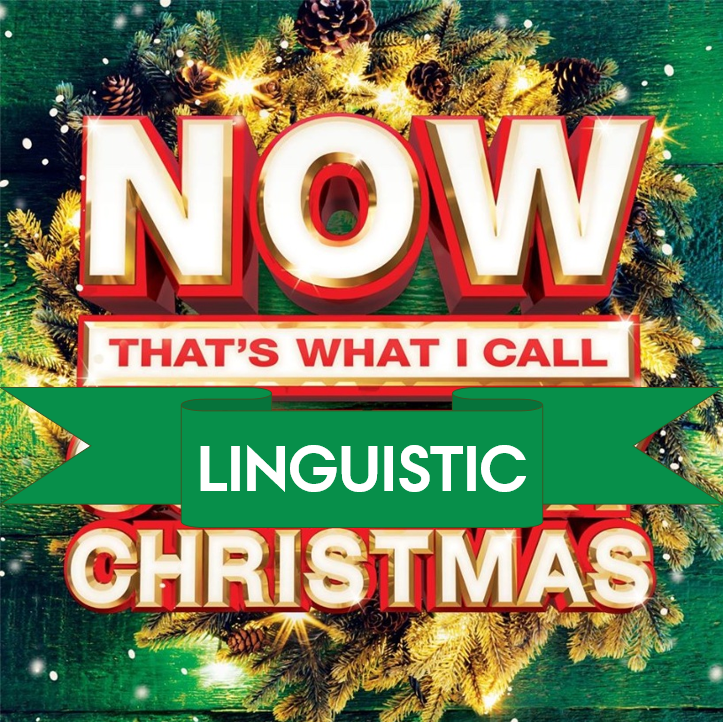The Quest For "Q" In Christmas: An Exploration Of Linguistic Rarity
The Quest for "Q" in Christmas: An Exploration of Linguistic Rarity
Related Articles: The Quest for "Q" in Christmas: An Exploration of Linguistic Rarity
Introduction
In this auspicious occasion, we are delighted to delve into the intriguing topic related to The Quest for "Q" in Christmas: An Exploration of Linguistic Rarity. Let’s weave interesting information and offer fresh perspectives to the readers.
Table of Content
The Quest for "Q" in Christmas: An Exploration of Linguistic Rarity

The Christmas season, a time of joyous celebration and cherished traditions, is often associated with a rich vocabulary. From the twinkling lights of "quirkiness" to the warmth of "quality time," countless words evoke the spirit of the holiday. Yet, one letter remains notably absent from the Christmas lexicon: "Q." This absence, however, presents an intriguing linguistic puzzle, prompting us to delve deeper into the reasons behind this apparent scarcity.
The Etymological Enigma:
The scarcity of Christmas words starting with "Q" can be attributed to several factors. Primarily, the letter "Q" itself is relatively rare in the English language. Its common usage is primarily in conjunction with the letter "U," as in "queen" or "quotient." This inherent rarity inherently limits its potential for forming new words, especially those related to a specific holiday like Christmas.
Furthermore, the historical development of the English language has influenced the scarcity of "Q" words. Many Christmas traditions and customs have roots in ancient languages like Latin and Old English, where the letter "Q" was less prevalent. As these traditions evolved and were incorporated into the English vocabulary, the "Q" remained relatively absent.
The Quest for Meaning:
While the lack of "Q" words in the Christmas vocabulary may seem like a linguistic quirk, it presents an opportunity for deeper exploration. It invites us to consider the inherent challenges of creating new words, particularly those related to specific themes or holidays. The process of word creation involves a delicate balance of meaning, sound, and cultural context.
Moreover, the absence of "Q" words highlights the power of language to shape our understanding of the world. By focusing on the words that are present, we gain a deeper appreciation for the nuances of meaning and the cultural significance embedded within them.
Exploring the "Q" Factor:
While the absence of "Q" words may be a linguistic reality, it does not preclude the possibility of exploring alternative approaches to incorporating this letter into the Christmas vocabulary. One approach could involve utilizing existing words starting with "Q" and applying them to the Christmas context. For instance, "quality time" could be redefined as the time spent with loved ones during the holiday season.
Another approach could involve the creation of new words or phrases that incorporate "Q" and are relevant to Christmas. For example, "quirkmas" could be a playful term for the unique and unexpected traditions that make Christmas special.
FAQs about Christmas and the Letter "Q":
Q: Are there any Christmas words that start with "Q" in other languages?
A: While English lacks "Q" words related to Christmas, other languages may have different traditions and vocabulary. For example, in French, "qu’il neige" (let it snow) is a common Christmas phrase.
Q: Is there any historical significance to the absence of "Q" words in Christmas?
A: The absence of "Q" words in Christmas is primarily a linguistic phenomenon. However, it could be argued that the letter’s rarity in English reflects the historical influence of other languages where "Q" was less prevalent.
Q: Can we create new Christmas words starting with "Q"?
A: While challenging, the creation of new words is not impossible. However, any new words would need to be carefully crafted to resonate with the cultural context of Christmas and be readily accepted by the language community.
Tips for Incorporating "Q" into Christmas:
- Use existing "Q" words creatively: Reimagine existing "Q" words in the context of Christmas, such as "quality time" or "quirkiness."
- Play with word formation: Experiment with combining "Q" with other letters to create new words or phrases relevant to Christmas.
- Embrace the challenge: The absence of "Q" words presents an opportunity to explore the nuances of language and the creative potential of word formation.
Conclusion:
The absence of Christmas words starting with "Q" is a fascinating linguistic phenomenon. While it may seem like a simple quirk, it prompts us to consider the complex interplay of language, history, and culture in shaping our understanding of the world. As we continue to explore the rich vocabulary of Christmas, we can appreciate the unique challenges and opportunities presented by the letter "Q," a reminder of the ever-evolving nature of language and the power it holds to shape our experiences.








Closure
Thus, we hope this article has provided valuable insights into The Quest for "Q" in Christmas: An Exploration of Linguistic Rarity. We hope you find this article informative and beneficial. See you in our next article!
Leave a Reply